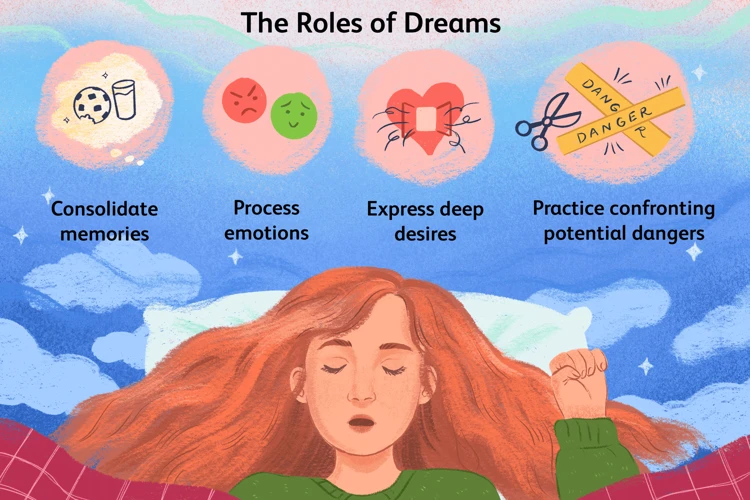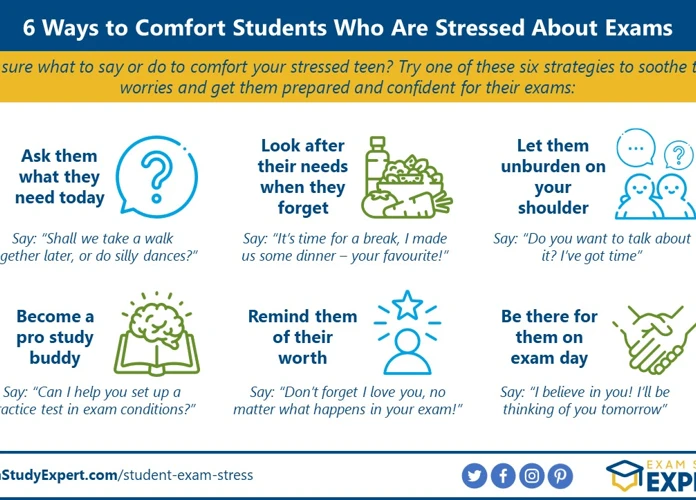It’s often said that our dreams are a reflection of our subconscious mind, and for many students, test-taking dreams are all too familiar. These dreams can range from forgetting important information to being unprepared for an exam. But what exactly is the connection between stress and these anxiety-inducing dreams? In this article, we will delve into the impact of stress on test-taking dreams, exploring the increased frequency, emotional intensity, and negative outcomes associated with these dreams. We will also examine why test-taking dreams occur in the first place, touching on test anxiety, performance pressure, and the fear of failure. Lastly, we will provide some practical tips and strategies on how to cope with stress-induced test-taking dreams. So, buckle up and get ready to unravel the mysteries of the dream world and its connection to the stress we experience in our waking lives.
What are Test-Taking Dreams?

Test-taking dreams are a specific type of dream that occur when individuals experience stress or anxiety related to exams or academic performance. These dreams typically involve scenarios where individuals find themselves in a test or exam setting, either unprepared or faced with difficult questions. The content of these dreams can vary widely, but some common themes include forgetting important information, running out of time, or being unable to answer questions correctly. These dreams often evoke feelings of stress, pressure, and frustration, making them particularly distressing for those who experience them. Understanding the meaning behind test-taking dreams can be helpful in interpreting their significance and the underlying emotions they represent. By exploring the symbolism and emotions within these dreams, individuals can gain insight into their subconscious thoughts and feelings. This self-reflection can lead to a better understanding of their test-related anxieties and may even provide an opportunity for personal growth and improvement in test-taking skills. For more information on interpreting common themes in test-taking dreams, click here.
The Connection Between Stress and Dreams

The connection between stress and dreams is a fascinating topic that has intrigued researchers and psychologists for years. Dreams are believed to be the mind’s way of processing and organizing information, emotions, and experiences from our waking lives. When we experience stress, whether it be from academic pressures, personal challenges, or other sources, it can have a profound impact on our dreams. Stress can influence the content, emotions, and themes present in our dreams, including test-taking dreams.
1. Stress’s Impact on Dream Content: When under stress, our dreams may reflect the concerns and anxieties we are experiencing in our waking lives. This can manifest as dreams of being unprepared for a test, struggling to find answers, or even failing. The stress we feel during the day can seep into our dreamscape, creating scenarios where we face challenges and obstacles related to testing.
2. Role of Anxiety in Test-Taking Dreams: Anxiety plays a significant role in test-taking dreams. The heightened state of stress and pressure associated with exams can trigger anxiety not only during waking hours but also in our dream state. This anxiety can amplify feelings of being unprepared, fearful of failure, or overwhelmed by the demands of academic performance. Understanding the role of anxiety in test-taking dreams can shed light on the psychological impact of stress on our dream experiences.
Exploring the connection between stress and dreams, particularly test-taking dreams, can provide valuable insights into the effects of stress on our mental and emotional well-being. It can help individuals recognize the impact stress has on their dreams and identify potential areas of concern that may require attention and support. For more information on how self-confidence can influence test-taking dreams, click here. To delve deeper into the psychological aspect of test anxiety and dreams, click here.
1. Stress’s Impact on Dream Content
Stress has a significant impact on the content of test-taking dreams. When individuals experience high levels of stress, it can manifest in their dreams in various ways. One common effect of stress is the amplification of negative emotions and situations in dreams. For example, individuals may find themselves in extremely challenging exam scenarios or facing impossible tasks that reflect their feelings of overwhelm and pressure. Stress can also lead to distorted or fragmented dream narratives, making it difficult for individuals to fully comprehend or navigate their dreams. This fragmentation can mirror the scattered and chaotic nature of stress itself. Additionally, stress can influence the frequency of test-related dreams, causing them to occur more frequently during periods of heightened stress. These dreams may serve as a reflection of individuals’ preoccupation with exams and their lingering worries about their performance. Stress contributes significantly to the content of test-taking dreams, shaping their themes, emotions, and frequency. It’s crucial to address and manage stress effectively to alleviate its impact on both our waking lives and our dreams.
2. Role of Anxiety in Test-Taking Dreams
The role of anxiety in test-taking dreams is significant. Anxiety is a common emotion experienced by individuals when facing exams or academic challenges, and it often manifests itself in dreams related to test-taking. These dreams serve as a reflection of the individual’s fears and worries regarding their performance. Test anxiety can stem from a variety of factors, such as a fear of failure, pressure to succeed, or a lack of confidence in one’s abilities. When these anxieties are present, they can infiltrate the dream state, leading to intense and unsettling dreams about tests.
One way anxiety manifests in test-taking dreams is through heightened stress levels during the dream. Individuals may experience a sense of urgency or panic, reflecting the pressure they feel in real-life exam situations. This heightened stress can lead to feelings of being overwhelmed or unprepared, causing the dreamer to struggle with answering questions or remembering important information. These dreams often exaggerate the consequences of poor performance, further magnifying the anxiety felt during wakeful hours.
The role of anxiety in test-taking dreams is also reflected in the physical and emotional experiences within the dream. Many individuals report feeling a sense of unease, tension, or even dread during these dreams. These emotions can be so intense that they jolt the dreamer awake, resulting in a disrupted sleep pattern. The strong emotional impact of these dreams can linger upon waking, contributing to heightened stress levels and a sense of unease throughout the day.
Anxiety plays a significant role in test-taking dreams. It influences the content, emotions, and intensity experienced within these dreams. Understanding the connection between anxiety and test-taking dreams can provide valuable insights into the individual’s psychological state and help identify ways to address and manage test-related anxieties effectively. For more information on how to boost self-confidence in test-taking dreams, click here.
Understanding the Impact of Stress on Test-Taking Dreams

Understanding the impact of stress on test-taking dreams is crucial for recognizing the effects it can have on individuals’ psychological well-being. Here are three key aspects to consider:
When individuals experience heightened stress levels due to academic pressures or upcoming exams, it is common for the frequency of test-taking dreams to increase. These dreams may occur more frequently leading up to a test or during periods of heightened stress. The mind replays the anxieties and worries related to test performance during sleep, manifesting as test-taking dreams. This increased frequency can further contribute to sleep disturbances and overall feelings of unease.
Another important aspect to understand is the emotional intensity associated with test-taking dreams. These dreams often evoke strong emotions such as anxiety, fear, and frustration. Individuals may wake up feeling overwhelmed by these intense emotions, impacting their mood and mental state throughout the day. The emotional intensity in these dreams can be a reflection of the individual’s underlying stress, pressure, and self-doubt related to academic performance.
Test-taking dreams often involve negative outcomes, such as scoring poorly on an exam, being unprepared, or experiencing challenges during the test. These negative outcomes can intensify feelings of stress, self-doubt, and fear of failure. The mind magnifies these fears in the dream state, creating scenarios that reinforce negative beliefs and anxieties surrounding test performance. It is important to recognize that these dreams do not predict actual outcomes but rather reflect the individual’s psychological state and concerns.
Understanding the impact of stress on test-taking dreams provides valuable insight into the emotional toll that exam-related stress can have on individuals. By acknowledging and addressing these dreams, individuals can take proactive steps to manage their stress levels, improve their overall well-being, and adopt strategies to cope with test anxiety.
1. Increased Frequency of Test-Taking Dreams
One of the main impacts of stress on test-taking dreams is the increased frequency with which they occur. When individuals experience heightened levels of stress, such as during periods of intense studying or approaching deadlines, their subconscious mind may be preoccupied with thoughts of exams and academic performance. This preoccupation translates into an increased likelihood of having test-taking dreams. These dreams may occur more frequently leading up to an important test or during times of heightened stress. The heightened frequency reflects the significance of the stressor and its impact on the individual’s mental state. It is important to note that increased frequency of test-taking dreams does not necessarily indicate a lack of preparedness or incompetence. Rather, it is a manifestation of the individual’s heightened focus and concern for their academic success. Understanding the increased frequency of these dreams can help individuals recognize the role that stress plays in their subconscious thoughts and emotions surrounding exams. For tips on boosting self-confidence in test-taking situations, click here.
2. Emotional Intensity in Test-Taking Dreams
One notable aspect of test-taking dreams is the heightened emotional intensity that accompanies them. These dreams often elicit strong feelings of anxiety, stress, and even panic. As individuals navigate through the dream scenario, the emotional intensity intensifies, mirroring the pressure felt during actual test situations. The anxiety experienced in these dreams can be so overwhelming that it may even lead to waking up in a state of distress. This emotional intensity in test-taking dreams can be attributed to several factors. Firstly, it reflects the real-life pressure and stress that individuals may associate with exams and academic performance. The fear of failure, the desire for success, and the need to meet high expectations can all contribute to the heightened emotions experienced in these dreams. Additionally, the subconscious mind often amplifies emotions during dreams, including those related to anxiety and stress. It is important to acknowledge and validate these intense emotions in order to better understand the impact of stress on test-taking dreams and explore strategies for coping with them effectively. To learn more about the role of psychological test anxiety in dreams, you can refer to this informative article on psychological test anxiety dreams.
3. Negative Outcomes in Test-Taking Dreams
Negative outcomes in test-taking dreams can have a significant impact on an individual’s emotions and self-confidence. These dreams often involve scenarios where individuals fail exams, receive low grades, or experience other negative consequences. As a result, individuals may wake up feeling anxious, stressed, and even doubting their abilities. The emotional intensity of these dreams can linger long after waking, affecting an individual’s mood and mindset throughout the day. It’s important to note that these negative outcomes in dreams are merely manifestations of the fears and insecurities individuals may have about their academic performance. While these dreams can be distressing, it’s crucial to remind oneself that they are not a reflection of one’s actual abilities or potential success. Developing a healthy perspective on these dreams can help individuals maintain their self-confidence and motivation. For more information on how test-taking dreams can impact self-confidence, visit here.
Why Test-Taking Dreams Occur

There are several reasons why test-taking dreams occur. One common factor is test anxiety and performance pressure. Students who experience high levels of stress and pressure leading up to exams may find themselves having test-taking dreams as a manifestation of their anxiety. These dreams can be a reflection of their fears and worries about not performing well in the exam. Another reason for test-taking dreams is the fear of failure and perfectionism. Students who set high standards for themselves and have a fear of making mistakes may have dreams about failing tests or not meeting their own expectations. These dreams may stem from a deep-rooted desire to excel academically and a fear of falling short. The subconscious mind uses these dreams as a way to process these anxieties and insecurities. Understanding why test-taking dreams occur can provide valuable insights into one’s mindset and help address the underlying causes of stress and anxiety surrounding exams. For more information on how test anxiety can contribute to these dreams, click here.
1. Test Anxiety and Performance Pressure
Test anxiety and performance pressure are major contributors to the occurrence of test-taking dreams. Test anxiety refers to the excessive worry or fear that individuals experience before, during, or after taking an exam. This anxiety can manifest in various ways, such as physical symptoms (e.g., rapid heartbeat, sweating) and cognitive distress (e.g., negative thoughts, self-doubt). The fear of not performing well enough or failing the test creates a significant amount of stress, which can carry over into dreams. When individuals are under pressure to perform and meet high expectations, their subconscious mind may amplify these feelings of anxiety in their dreams. The dreams may replay scenarios of feeling overwhelmed by the pressure, being unprepared, or experiencing an inability to perform up to par. These dreams serve as a manifestation of the deep-rooted anxieties and pressures that individuals face in real-life test-taking situations. Understanding the role of test anxiety and performance pressure can help individuals recognize the influence these factors have on their test-taking dreams. By addressing and managing these anxieties, individuals may be able to reduce their frequency and intensity. To learn more about coping with test-related anxiety and building self-confidence, click here.
2. Fear of Failure and Perfectionism
The fear of failure and perfectionism are two significant factors that contribute to the occurrence of test-taking dreams. Many students experience immense pressure to perform well academically, whether it comes from their own expectations or external influences. This fear of failure creates a constant worry about making mistakes or falling short of expectations. Students with perfectionistic tendencies may set unrealistically high standards for themselves, constantly striving for flawlessness in their academic achievements. These unrealistic expectations can intensify stress and anxiety, leading to an increased likelihood of test-taking dreams. The fear of failure and perfectionism can create a cycle of self-doubt and negative self-talk, further fueling the anxiety associated with exams. These individuals may constantly worry about not meeting their own or others’ expectations, which manifests in their dreams as scenarios where they are unable to perform well on tests or meet the lofty standards they have set for themselves. It is important for individuals struggling with these issues to recognize the detrimental effects of perfectionism and the importance of embracing mistakes as opportunities for growth. By learning to reframe failure as a natural and essential part of the learning process, individuals can alleviate some of the anxiety and pressure that contribute to test-taking dreams.
Ways to Cope with Stress-Induced Test-Taking Dreams
Ways to cope with stress-induced test-taking dreams involve implementing effective stress management techniques and prioritizing self-care and relaxation. Stress management techniques such as deep breathing exercises, meditation, and progressive muscle relaxation can help reduce overall stress levels and promote a sense of calmness. These techniques can be practiced regularly, both before bed and during periods of high stress. Additionally, incorporating regular exercise into daily routines can help alleviate stress and improve sleep quality. Engaging in activities such as yoga, jogging, or dancing can release endorphins, which are natural mood boosters. Another important aspect of coping with stress-induced test-taking dreams is prioritizing self-care and relaxation. This includes maintaining a consistent sleep schedule, ensuring adequate rest, and avoiding stimulating activities close to bedtime. Creating a calming bedtime routine, such as reading a book, taking a warm bath, or listening to soothing music, can also promote relaxation and prepare the mind for restful sleep. It is crucial to practice self-compassion and not be too hard on oneself when experiencing these dreams, as they are a natural response to stress. By actively implementing these coping strategies, individuals can effectively manage stress-induced test-taking dreams and create a more positive and balanced mindset. For more tips on self-care and managing stress, click here.
1. Stress Management Techniques
Stress management techniques can play a crucial role in coping with the impact of stress-induced test-taking dreams. Here are some effective strategies to help reduce stress and promote relaxation:
1. Deep breathing exercises: Deep breathing is a simple yet powerful technique that can instantly calm the mind and body. By taking slow, deep breaths, you activate the body’s relaxation response and decrease stress levels. Practice deep breathing exercises before bed or whenever you feel overwhelmed to help alleviate test-related stress.
2. Visualization and guided imagery: Visualization involves creating a mental image of a calming and peaceful place. Close your eyes and imagine yourself in a serene setting, such as a beach or a tranquil garden. Engaging in guided imagery can help distract the mind from test-related worries and promote a sense of relaxation.
3. Mindfulness meditation: Mindfulness meditation involves focusing your attention on the present moment without judgment or attachment to thoughts. By practicing mindfulness, you cultivate a state of awareness and acceptance of your thoughts and emotions, reducing stress and promoting mental clarity.
4. Physical exercise: Engaging in regular physical exercise is not only beneficial for your overall health but also helps reduce stress levels. Exercise releases endorphins, the body’s natural mood-boosting hormones, and promotes a sense of well-being. Incorporate activities like walking, jogging, yoga, or dancing into your routine to help manage stress effectively.
5. Time management and organization: Poor time management and disorganization can contribute to stress and anxiety. Develop a study schedule and prioritize tasks to help manage your time more efficiently. Breaking down tasks into smaller, manageable chunks can also prevent feelings of overwhelm and help you stay focused and calm.
Remember, finding the right stress management techniques may require some trial and error. Experiment with different strategies and adapt them to suit your individual needs and preferences. By incorporating these stress management techniques into your daily routine, you can reduce the impact of stress on your test-taking dreams and create a more balanced and relaxed mindset.
2. Prioritizing Self-Care and Relaxation
Prioritizing self-care and relaxation is crucial for managing stress-induced test-taking dreams. When experiencing high levels of stress, it’s important to take time for oneself and engage in activities that promote relaxation and well-being. One effective method is through practicing mindfulness and meditation. These techniques can help individuals to calm their minds, reduce anxiety, and improve overall mental clarity. Additionally, engaging in regular exercise can have numerous benefits, including reducing stress levels and promoting better sleep. Getting adequate rest is vital for managing stress and ensuring a healthy mental state. Establishing a consistent sleep schedule and creating a relaxing bedtime routine can help individuals to unwind and have more restful sleep. It’s also important to engage in activities that bring joy and provide an outlet for stress, such as hobbies, spending time with loved ones, or participating in leisure activities. Taking breaks from studying or test preparation can provide a much-needed mental break and allow individuals to recharge. By prioritizing self-care and relaxation, individuals can better manage stress levels and minimize the occurrence of test-taking dreams. This, in turn, can lead to improved well-being and performance in both academic and personal areas of life.
Conclusion
In conclusion, test-taking dreams are a manifestation of the stress and anxiety that many individuals experience in relation to exams and academic performance. These dreams can be characterized by their frequency, emotional intensity, and negative outcomes. Factors such as test anxiety, performance pressure, fear of failure, and perfectionism contribute to the occurrence of these dreams. It is important to acknowledge that test-taking dreams are a natural response to stress and should not be dismissed as mere imagination. Instead, individuals should focus on developing effective strategies to cope with stress-induced dreams. Managing stress through techniques such as mindfulness, deep breathing exercises, and time management can help reduce the frequency and intensity of test-taking dreams. Additionally, prioritizing self-care, relaxation, and maintaining a healthy work-life balance can also contribute to overall well-being and reduce stress levels. It is important to remember that one’s dreams do not define their abilities or potential for success. By understanding the impact of stress on test-taking dreams and implementing coping mechanisms, individuals can navigate through the challenges of exam-related stress more effectively. Developing resilience and a positive mindset can ultimately lead to improved academic performance and well-being.
Frequently Asked Questions
1. Can test-taking dreams actually impact my performance in real exams?
While test-taking dreams can be unsettling and may heighten your anxiety, they don’t directly impact your real-life performance. However, they can indicate underlying stress or pressure that you may be feeling about exams.
2. Are test-taking dreams more common during certain times of the year?
Test-taking dreams can occur at any time, but they may be more prevalent during exam seasons or periods of increased academic pressure.
3. Is there a specific reason why some people have more test-taking dreams than others?
Everyone’s dream patterns are unique, so the frequency of test-taking dreams can vary. It may depend on individual factors such as personality traits, levels of stress, or experiences with exams.
4. Do test-taking dreams always reflect real-life exam situations accurately?
Test-taking dreams often contain exaggerations or unrealistic scenarios. They are a representation of your psychological state rather than an accurate reflection of actual exam situations.
5. Can practicing relaxation techniques or stress management strategies help reduce test-taking dreams?
Yes, incorporating relaxation techniques and stress management strategies into your routine can help reduce overall stress levels and, in turn, potentially mitigate the occurrence of test-taking dreams.
6. Are test-taking dreams a sign of academic incompetence?
No, test-taking dreams are not a reflection of your academic abilities. They are more linked to the stress and anxiety associated with exams rather than your actual competence.
7. Are there any positive aspects of having test-taking dreams?
Although test-taking dreams can be unpleasant, they can also serve as a motivational reminder to adequately prepare and address any underlying test-related anxieties.
8. Can keeping a dream journal help in understanding test-taking dreams?
Keeping a dream journal can be beneficial in gaining insights into the emotions and thoughts surrounding test-taking dreams. It allows you to track patterns and identify potential triggers.
9. Are there any connections between test-taking dreams and self-confidence?
Test-taking dreams can sometimes reflect underlying self-confidence issues. Working on building self-confidence and positive mindset can help alleviate test-related anxieties.
10. Should test-takers seek professional help for recurring and distressing test-taking dreams?
If test-taking dreams are frequent and significantly distressing, seeking professional help from a therapist or counselor who specializes in dream analysis or anxiety management may be beneficial.








